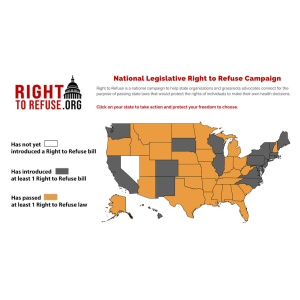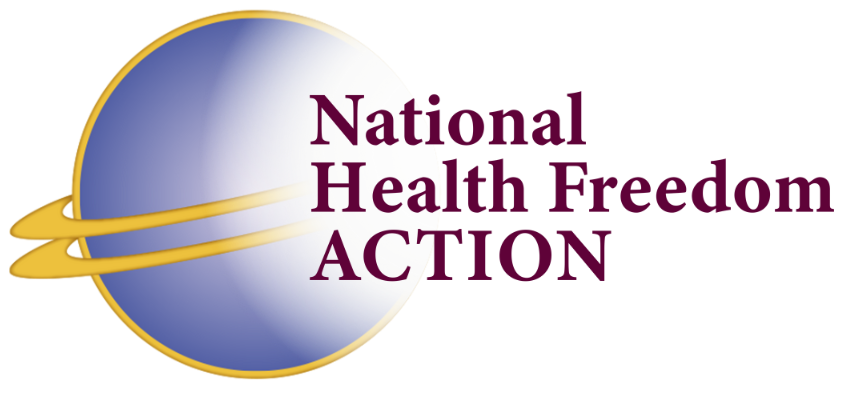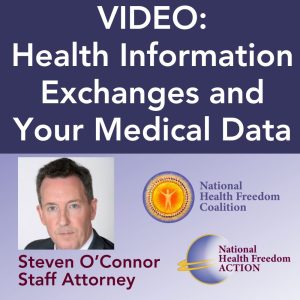

Administrative Overreach: New York Judge
Strikes Down State Quarantine Rule!
One recurring issue in our legal system, and in the COVID-19 pandemic in particular, is the interplay between the legislative authority to make laws and the executive-derived powers used by agencies to make rules implementing and interpreting the law. In several COVID-19 era cases, courts including the US Supreme Court have found that executive agencies acted outside of their powers, e.g., the CDC’s eviction moratorium rule. Notably, laws are made by elected representatives, while rules are normally made by unelected bureaucrats. This is often considered a separation of powers issues, as when executive agencies overstep their authority, the executive is effectively making law, which is the prerogative of the legislature.
Borrello v. Hochul
In a July 8 opinion, Judge Ronald Ploetz of the New York Supreme Court in Cattaraugus County (in New York state, the “Supreme Court” is the local trial court) determined that New York State Health Department Rule 2.13 was contrary to state law. The agency’s rule drastically expanded the authority to involuntarily quarantine folks deemed a threat by the Health Department, as compared with the pre-existing Public Health Law Section 2120. The case is Borrello v. Hochul; state senator George Borrello, Assemblymen Chris Tague and Michael Lawler and the advocacy group Uniting NY State are suing Governor Kathleen Hochul along with the state health department and its Commissioner Mary T. Bassett.
Rule 2.13 Adopted March 2020
On March 7, 2020 Governor Hochul signed Executive Order No. 202, modifying the existing law “to the extent necessary to allow the Commissioner of Health to promulgate emergency regulations.” On March 9, 2020, the Commissioner of Health adopted Rule 2.13. Then on June 24, 2021, the governor terminated Executive Order No. 202. Rule 2.13 has been extended by successive 90-day periods through July 20, 2022, and the government has indicated that the Commissioner of Health is seeking to make the rule permanent.
Separation of Powers is Key Issue
According to Judge Ploetz, “The key issue in this…Action concerns the separation of powers.” While the state Constitution gives the legislature the exclusive power to make laws, it calls for the executive branch to, “execute and administer the laws.” When the executive takes action inconsistent with the legislature, or usurps its powers, the “doctrine of separation is violated.” Ploetz sets out the four factors in state law used to decide when administrative rule making “crosses the line” into improper lawmaking: did the agency make value judgements over broad policy goals, did the agency write on a “clean slate” without legislative guidance, has the legislature previously tried to reach accord on the issue, and whether “the agency used special expertise or competence in the field to develop the challenged regulation.”
Public Health Law Section 2120
The four factors must be seen in light of Public Health Law Section 2120. This statute sets out criteria for agency actions such as quarantine: First if a doctor makes a complaint to a health officer that a person has a communicable disease and is “unable or unwilling to conduct himself and to live in such a manner as not to expose members of his family or household or other persons with whom he may be associated to danger of infection, the health officer shall forthwith investigate the circumstances alleged.” If they find that the person is a “menace” they must make a complaint before a judge. If the court is convinced that the person is a danger to others, they may be committed, “to any hospital or institution established for the care of persons suffering from any such communicable disease…”
Rule 2.13 Disregards Individual Rights
Looking at the four factors in the Public Health Law Section above, Ploetz first notes that Section 2120 was enacted in 1953, “and provides a procedure for obtaining a quarantine or isolation order. There are obvious and substantial differences between Rule 2.13” and Section 2120. The later is triggered when a doctor reports that a sick person or carrier “refuses to conduct himself or live in a manner as not to expose others to possible infection.” On the other hand, Rule 2.13 is triggered by a determination of the Commissioner of Health and can be directed at any person they deem appropriate. “There is no requirement that the subject individual be afflicted with or a carrier of the disease.” Section 2120 provides for an investigation and a hearing in court in the presence of the person affected. If the court finds that the person is a danger to other, they can issue an isolation order. Under Rule 2.13, it is the health commissioner who determines, “the terms of isolation including its location and duration.” And 2.13 allows utilization of local police in enforcement, while Section 2120 does not. In passing Section 2120 the legislature appeared to balance individual rights against public safety interests. Yet Rule 2.13 “disregards any balancing of individual rights against public safety needs.”
Rule 2.13 Denies Court Hearing
The government offered no data or expert testimony as to the necessity of Rule 2.13. Considering all of the four factors, the judge ruled that on balance Rule 2.13, “was invalid in light of the pre-existing provision adopted by the Legislature in [Section] 2120.” Because he found the rule invalid, Ploetz did not need to address due process under the New York Constitution. But he went on to note that, “Involuntary detention or hospitalization, even if done pursuant to…2120, triggers Constitutional protections including the right to counsel as well as proof of the need for detention by clear and convincing evidence.” 2120 demands a court hearing, while Rule 2.13 does not: “The Commissioner has unfettered discretion to issue a quarantine or isolation for anyone, even if there is no evidence that person is infected or a carrier of the disease. Further, the Commissioner sets the terms, duration, and location of the detention, not an independent magistrate as required by” Section 2120.
“Lip Service” to Due Process Not Enough
Ploetz concludes that, “Involuntary detention is a severe deprivation of individual liberty, far more egregious than other health safety measures, such as requiring mask wearing at certain venues. Involuntary quarantine may have far reaching consequences such as loss of income (or employment) and isolation from family.” And any protections given by Rule 2.13 are only “lip service” to constitutional due process. As it conflicts with Section 2120, it is “null, void and unenforceable as a matter of law….”
Governor Appeals, Senator Borrello Comments
According to Chautauqua Today, Governor Hotchul and the state Attorney General are appealing Ploetz’ decision. They also report on a statement from Senator Borrello. He notes that the appeal is a “disservice” to New Yorkers: “What they are fighting to defend goes beyond the scope of this disturbing, authoritarian-style regulation; they are fighting to establish the rulemaking process as a backdoor channel for creating mandates and measures that rightly belong in the legislative realm.”
RECENT NEWS

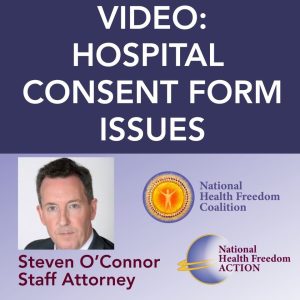
Video: Hospital Consent Forms and Health Freedom
January 29, 2026
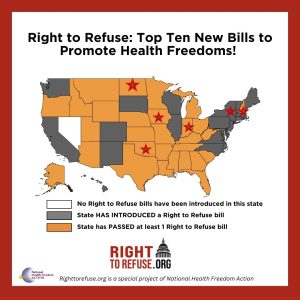
Right to Refuse: Top Ten New Bills to Promote Health Freedoms!
January 22, 2026
